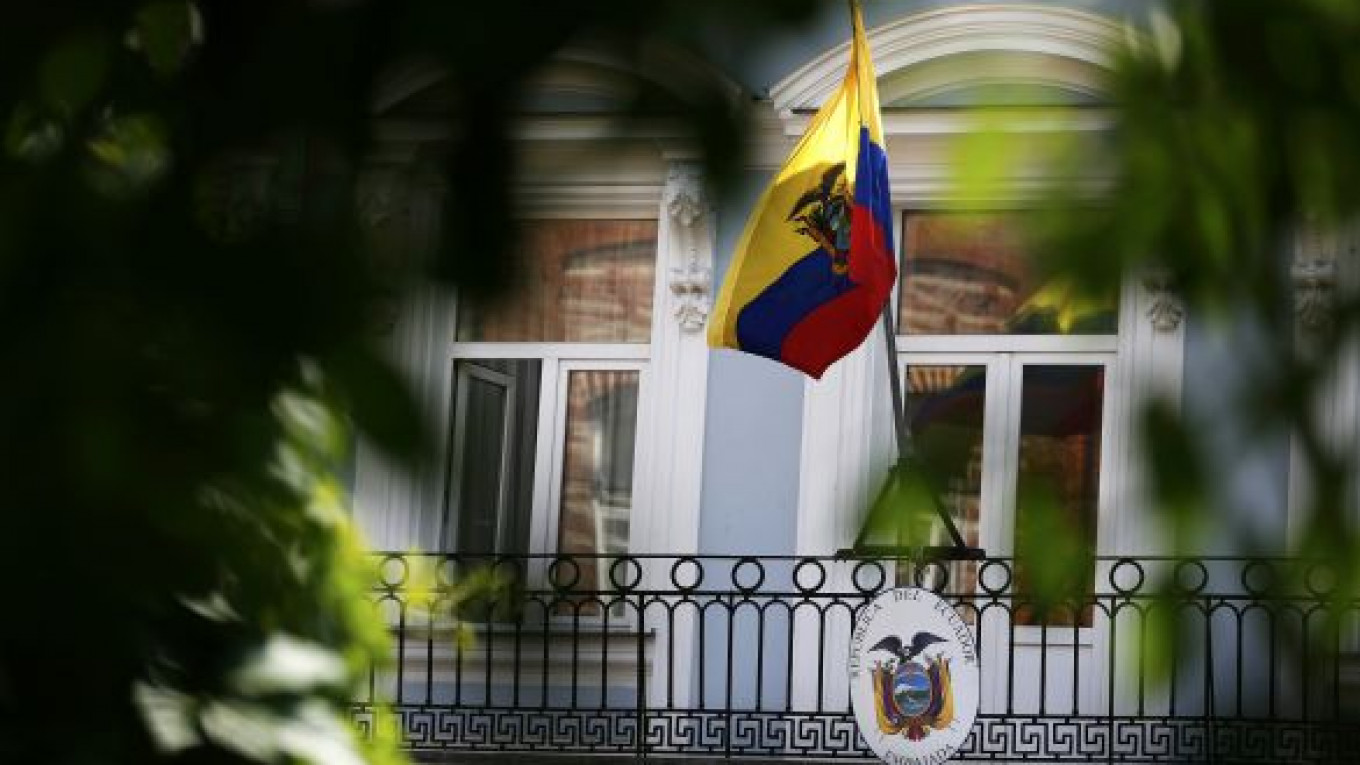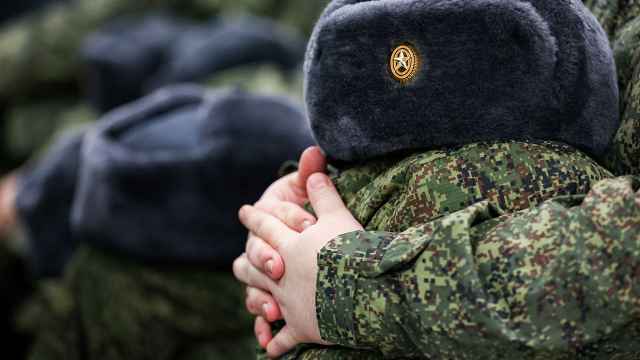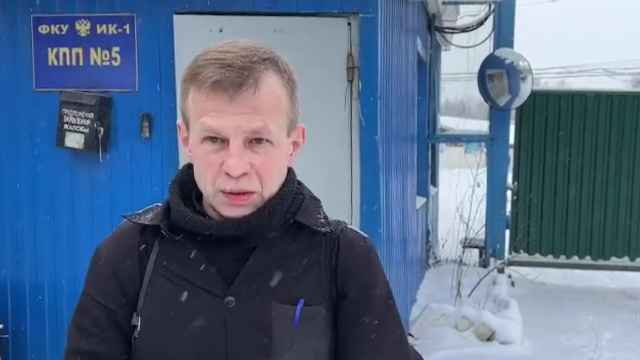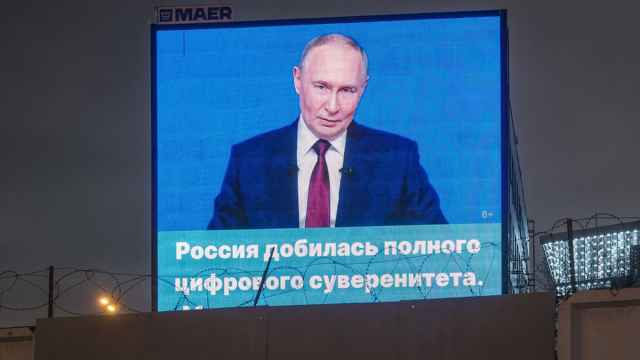Journalists flocked to Moscow's Sheremetyevo Airport on Monday to board a flight to Cuba that supposedly would also contain fugitive Edward Snowden, who is attempting to escape arrest by U.S. authorities for revealing highly classified surveillance programs.
According to a widely distributed statement by an unidentified Aeroflot employee, Snowden should have been on flight SU150 direct to Havana leaving Moscow on Monday afternoon. The Aeroflot employee even said which seat he was to occupy, 17A.
But reporters, whose news organizations shelled out about $2,000 per ticket to get them on board at the last minute, found no Snowden anywhere on board — increasing suspicions that Russia could be helping to stymie U.S. efforts to catch him amid a low point in bilateral relations.
After Snowden supposedly arrived at Sheremetyevo from Hong Kong on Sunday, Washington pressured Moscow to detain him, apparently to no avail. Russian officials said that given poor ties between the countries, which have split in recent months over issues including the civil war in Syria and the U.S. Magnitsky Act, they are in no rush to help their former Cold War foes.
“Ties are in a rather complicated phase, and when ties are in such a phase, when one country undertakes hostile action against another, why should the United States expect restraint and understanding from Russia?” Alexei Pushkov, the head of the State Duma's International Affairs Committee, repeated Reuters.
A former technical contractor with the U.S. National Security Agency, Snowden is reportedly seeking to travel to Ecuador, which is considering his asylum request. His current whereabouts are unknown.
Ecuador has already equipped Snowden with refugee papers that could allow him safe passage to his destination, according to WikiLeaks founder Julian Assange, whose organization has assisted Snowden. The U.S. government said earlier that Snowden's American passport had been revoked.
Assange told the Guardian on Monday that he was aware of Snowden's whereabouts but that he was unable to reveal them due to “bellicose threats coming from the U.S. administration.”
U.S. Secretary of State John Kerry, speaking on Monday at a news conference in New Delhi, implored Russia to assist in efforts to apprehend Snowden, recalling that over the last two years, the U.S. had extradited seven prisoners requested by Russia. “Reciprocity and the enforcement of the law is pretty important,” he said.
“I suppose there is no small irony here. I mean, I wonder if Mr. Snowden chose China and Russia's assistance in his flight from justice because they are such powerful bastions of Internet freedom, and I wonder if while he was in either of those countries he raised the question of Internet freedom, since that seems to be what he champions,” Kerry said.
The cooperation described by Kerry is a drop in the bucket compared to the disputes between the countries, however.
Following some successes during a “reset” in ties kicked off in 2009 at the behest of U.S. President Barack Obama, relations took a sharp downward turn with the return of Vladimir Putin to the Kremlin last year.
Under Putin, the Russian government has undertaken what critics call a harsh crackdown on the opposition and on civil society, including kicking out the U.S. Agency for International Development, while the U.S. last year passed the Magnitsky Act, which imposes economic and travel restrictions on Russian officials implicated in human rights abuses. Russia retaliated by outlawing U.S. adoptions of Russian orphans.
More recently, the two nations have argued bitterly over what tack to take in seeking a solution to the civil war in Syria, with Russia backing President Bashar Assad and the U.S. supporting the rebels.
Now, the fate of Snowden, a 30-year-old former employee of a U.S. security contractor whose exposure of government phone and Internet surveillance has provoked public outrage, is becoming another point of contention.
According to Andrei Soldatov, a leading expert in Russia's security agencies, the Russian government itself has an extensive system to monitor almost any kind of communication between its citizens.
Pushkov said Russia had no obligation to help the U.S. in this situation, given the recently passed Magnitsky Act. It was unclear whether Russian authorities had had contact with Snowden — Putin's spokesman said Monday that the Kremlin was unaware of any such contact — but it seemed unlikely that the government could be unaware of Snowden's whereabouts if he had entered Russia.
“All these flights carried out by Aeroflot via Moscow, as though there is no other route, are emblematic of Russia's involvement in the process,” said Valery Garbuzov, deputy director of the Institute for U.S. and Canadian Studies in Moscow.
Ecuador's foreign minister also said his government was in “respectful” contact with Russia over Snowden's asylum application.
Nonetheless, Washington appears to be holding out hope for assistance from Moscow.
Caitlin Hayden, a spokeswoman for the U.S. National Security Council, mentioned “intensified cooperation after the Boston marathon bombings and our history of working with Russia on law enforcement matters” as grounds for Russia “to look at all options available to expel Mr. Snowden back to the U.S. to face justice for the crimes with which he is charged.”
Related articles:
A Message from The Moscow Times:
Dear readers,
We are facing unprecedented challenges. Russia's Prosecutor General's Office has designated The Moscow Times as an "undesirable" organization, criminalizing our work and putting our staff at risk of prosecution. This follows our earlier unjust labeling as a "foreign agent."
These actions are direct attempts to silence independent journalism in Russia. The authorities claim our work "discredits the decisions of the Russian leadership." We see things differently: we strive to provide accurate, unbiased reporting on Russia.
We, the journalists of The Moscow Times, refuse to be silenced. But to continue our work, we need your help.
Your support, no matter how small, makes a world of difference. If you can, please support us monthly starting from just $2. It's quick to set up, and every contribution makes a significant impact.
By supporting The Moscow Times, you're defending open, independent journalism in the face of repression. Thank you for standing with us.
Remind me later.






